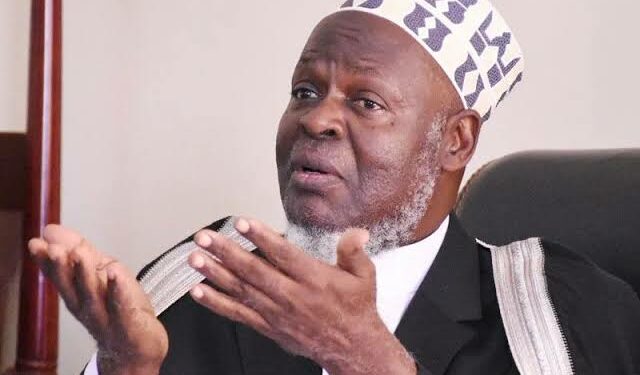By Joshua Muzira
“I would be pleased if TikTok were banned in Uganda.” These were some of the words Mufti Ramadan Mubajje shared with the Muslim family gathered for Ramadan prayers on Sunday, 30 March 2025, at Old Kampala Mosque.
He said that the platform is being abused and that there aren’t many rules about it, so many idle people are using it to make inappropriate content, sometimes with hateful and divisive messages.
TikTok is the fastest-growing social media platform, expected to surpass Facebook and WhatsApp, boasting approximately 1.5 billion monthly active users worldwide. As of December 2023, around 5.5 million Ugandans were active on TikTok, according to the Uganda Communication Commission.
Mubajje reportedly expressed appreciation for a visit to a country where TikTok is not used, as he believes it does more harm than good. He added, “It is even worse than Facebook and could plunge the nation into chaos if no action is taken against it.”
His words have sparked a debate among the public, with some agreeing with his plea to the government while others have condemned him, labeling it a selfish move that threatens their freedom of speech and expression.
Several parents believe that the app is not good for children because many videos of immorality, hateful speeches, and inappropriate language is the order of the day, and so some have restricted it for their children, and so are in support of banning it for the safety of their children.
However, many of those criticizing him for this speech believe that there are more issues of national importance to address, like the high levels of unemployment, massive poverty, poor service delivery, and untold corruption, more than ranting about the ban of TikTok.
Some have turned to social media, primarily TikTok, to voice their dissatisfaction and criticize him for his controversial term extension.
Mubajje was expected to retire earlier this year upon reaching 70 years of age, but breaking news announced that his term had been extended by five years, facing strong opposition from many who claim this action is unconstitutional and motivated by his desire to cling to power rather than to concede.
Former legislator Mubarak Munyagwa, commonly known as “Mugaati gwa bata,” also criticized Mubajje on a political show on NBS for not supporting Ugandans. He noted that while many sheikhs elsewhere were speaking against the oppression and brutalization of the people, Mubajje was advocating for a TikTok ban instead.
He referenced Prince Nakibinge, who condemned the government for using excessive force in the recently concluded Kawempe North by-election, which resulted in numerous injuries, including journalists, and had expected similar courage from Mubajje.
While it appears there are no regulations in place, the parliament passed the Computer Misuse Act aimed at curbing abuse and immorality on the internet, and some individuals are already in prison after pleading guilty to offenses.
In conclusion, like anything else, TikTok has its advantages and disadvantages, and it is up to the government to ensure that the detriments do not overshadow the benefits, as many have already gained from the platform through sharing information, social media marketing, meeting new people, virtual meetings, and employment, not to mention the influencers who profit significantly from the platform.
Do you have a story in your community or an opinion to share with us: Email us at editorial@watchdoguganda.com












